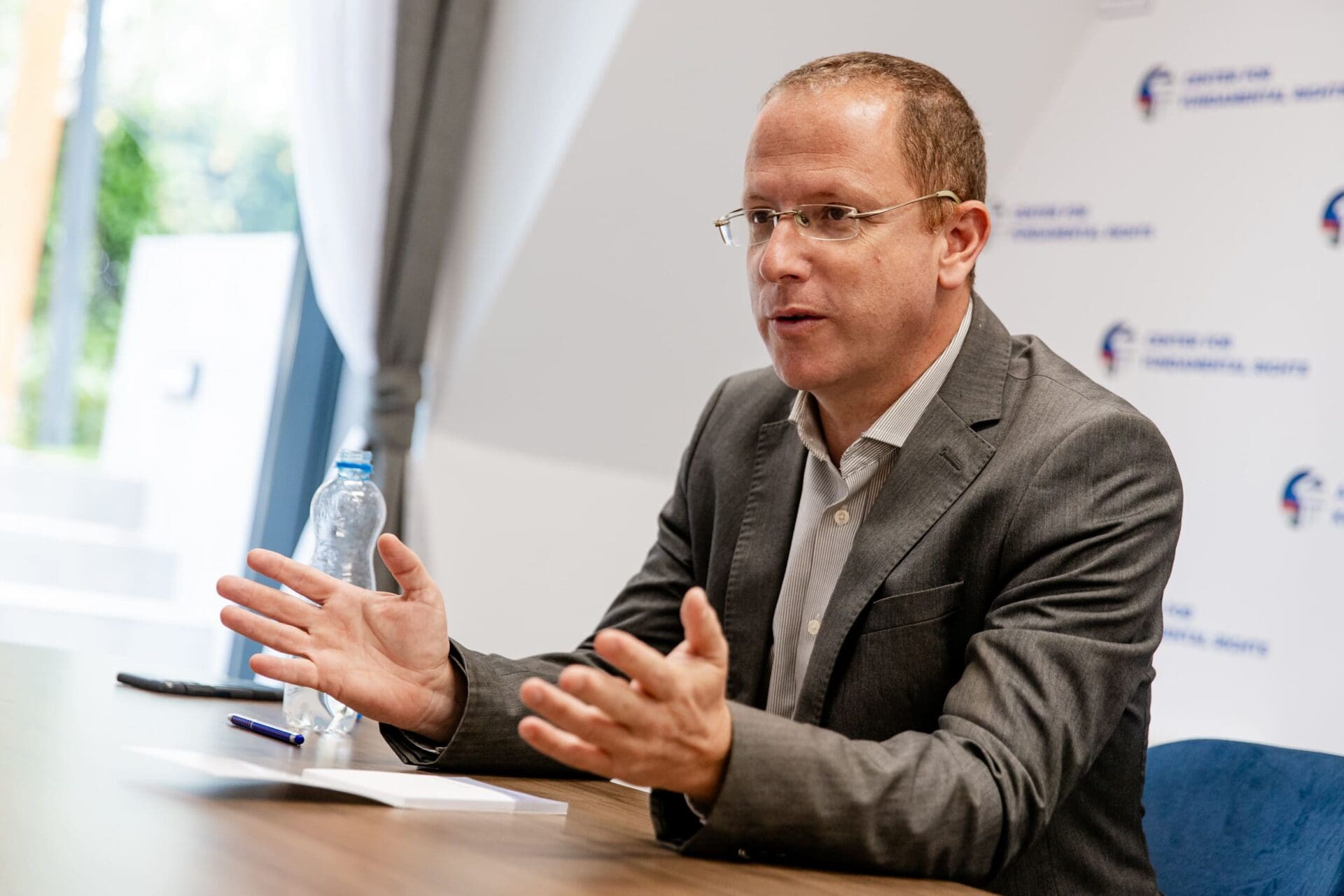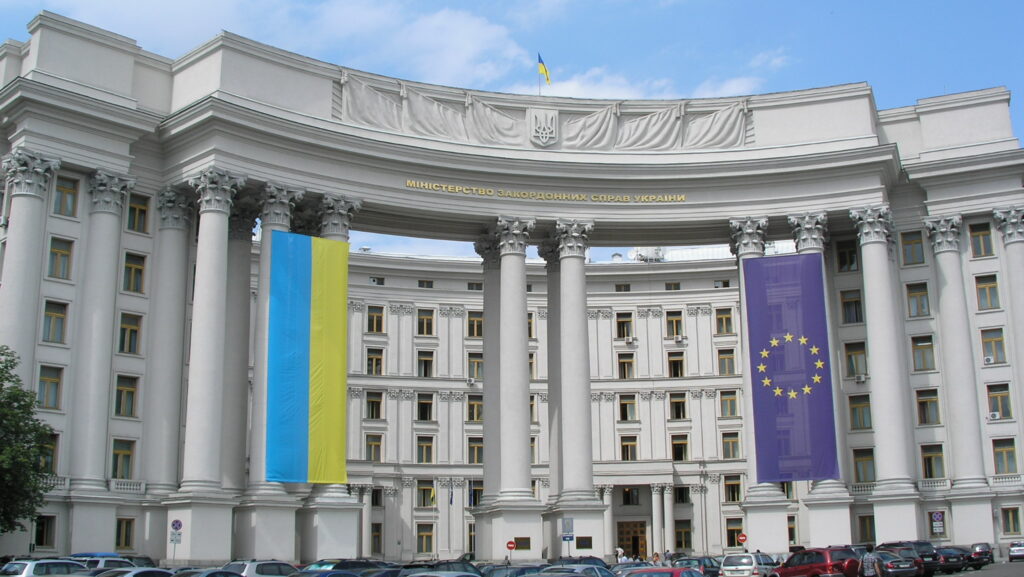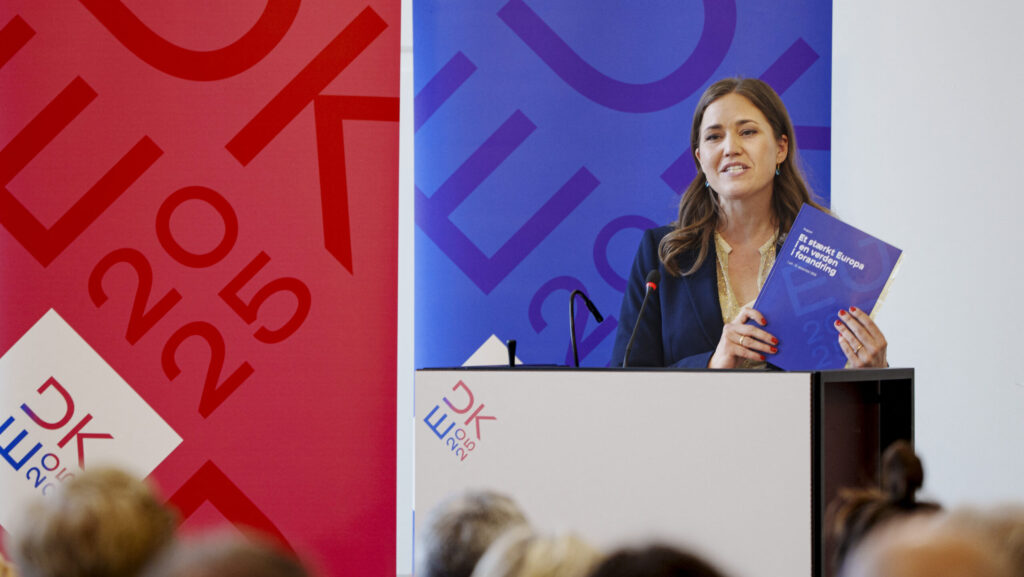Ariel Bulshtein is a journalist, lecturer and lawyer. In 2019, Israeli Prime Minister Benjamin Netanyahu appointed him his special advisor on immigration from the countries of the former USSR. Mr Bulstein was born in Chisinau, Moldova in 1974 and has lived in Israel since 1990. He has a Bachelor of Law and Master of International Management. Since 2001 he has been engaged in private practice in the field of commercial law. He joined the right-wing Likud party in 1992. Hungarian Conservative spoke with Mr Bulshtein in Budapest, during the European Pro–Israel Summit organized by the Center for Fundamental Rights on 9 October.
***
We all know what has been happening in Israel for the past two days. How do you perceive it? Did it really come all of a sudden, or did Israel have any prior intelligence that there might be an attack from Gaza?
It’s too early to determine whether our security services and intelligence had any signs of this scenario. I suppose that after the war, there will be some form of investigation to establish the facts. However, I believe that in this case, reality speaks for itself. It’s quite clear that Israel was caught unprepared for such a large-scale attack at this moment. I suspect that it was in preparation for a long time, perhaps years, certainly not just months. It raises a good question about why it was not on the radar of our security services. Nevertheless, it’s too early for definitive answers, and there will be sufficient time to investigate it.
We’ve heard about the tactical level. How about the operational level?
The other level is indeed the operational one, which to my mind, is much more important. The fact is that a big portion of Israeli society and, I would say, a huge majority of the world was caught unprepared, not on the tactical level, but was actually surprised by the fact that the terrorist organization that proclaims clearly and loudly that its goal is to exterminate Israel—this term, not push Israel, not demand something from Israel, but to exterminate it totally—actually does everything in order to implement this goal.
Before this attack, I used to say to the international audience that our major lesson from the Holocaust was that when some crazy ideology and crazy people declare that they would like to exterminate us, it’s better to believe them. Now, after this attack, I actually have the impression that a big part of Israeli society didn’t learn this lesson. This is because this idea was born on the leftist part of our political spectrum, but was then accepted by the centre and even by some part of the right-wing Israelis, which was that you can actually try to achieve, if not peace, but some kind of coexistence with your haters if you give them something that they demand.
The first idea was to give them the territory for peace, am I right?
Exactly, they demanded the territories that we have controlled since the Six-Day War in 1967. And the reply from, first of all, the leftist part of Israeli society was, ‘Okay we’ll do it’. Israel did it in 1993, when it signed the Oslo Accords with a Palestinian Liberation Organization, it acted exactly according to this formula.
We give you land, and you give us peace. It didn’t work.
It couldn’t work. The right-wing part of the Israeli society actually was sure that it couldn’t work because when the terrorist gets what he demands he doesn’t stop. On the contrary, he continues from this position and makes a new demand, but he never gives up on his goal to kill you.
But in 2005, Israel even withdrew from the entire Gaza Strip to the 1967 Green Line…
Yes, because unfortunately, Israel made the same mistake. Israel actually pulled all the Jewish population and army out of there. Then the expectation of the Israeli left was that when the terrorists, —and I will later elaborate on who the terrorists are here, and how difficult is to justify—if you give them what they want, will be satisfied and quiet, and they want to be on their own. They will then build new societies or flourish, since the world community gives them a large amount of money, so now they can use it to create something positive.
And, of course, the result was completely opposite. Instead of building their new Singapore, they built a fully weaponized state—weaponized not only in the material sense but also weaponized in ideology, with the primary goal of their existence being to kill us. So, I’m surprised that it was a surprise for a big part of the Israeli population that this event occurred.
And on the operational level? How would you evaluate the things that happened?
On the operational level, of course, it was a big shock, a surprise, and raised a lot of harsh questions for our army for not being prepared, for our security services and intelligence, for not being aware of the preparations. But on the most significant level, because despite this tragedy, life will continue, and we need to learn lessons. And, to my mind, the Israeli public should understand what was clear for the right-wing part of it: that
out of hateful ideology, you cannot create something peaceful—giving them what they want is not a solution.
On the contrary, you will get the opposite results. That’s why I think this is the most important lesson.
I’m not sure that the world understands that in the way that I see it. I understand that the world community was shocked, and we’re not accustomed to seeing gestures like, for example, the Eiffel Tower illuminated in the Israeli flag’s colours. It has never happened with other barbaric terror attacks that we’ve experienced. So, we understand that there is a kind of shock, and not just in Israel. However, unfortunately, I do not believe that the world understands that it’s not a one-time event that came out of the blue. No, it was the natural result of this wrong approach that if you give the aggressor, the terrorist, what they want, they will stop.
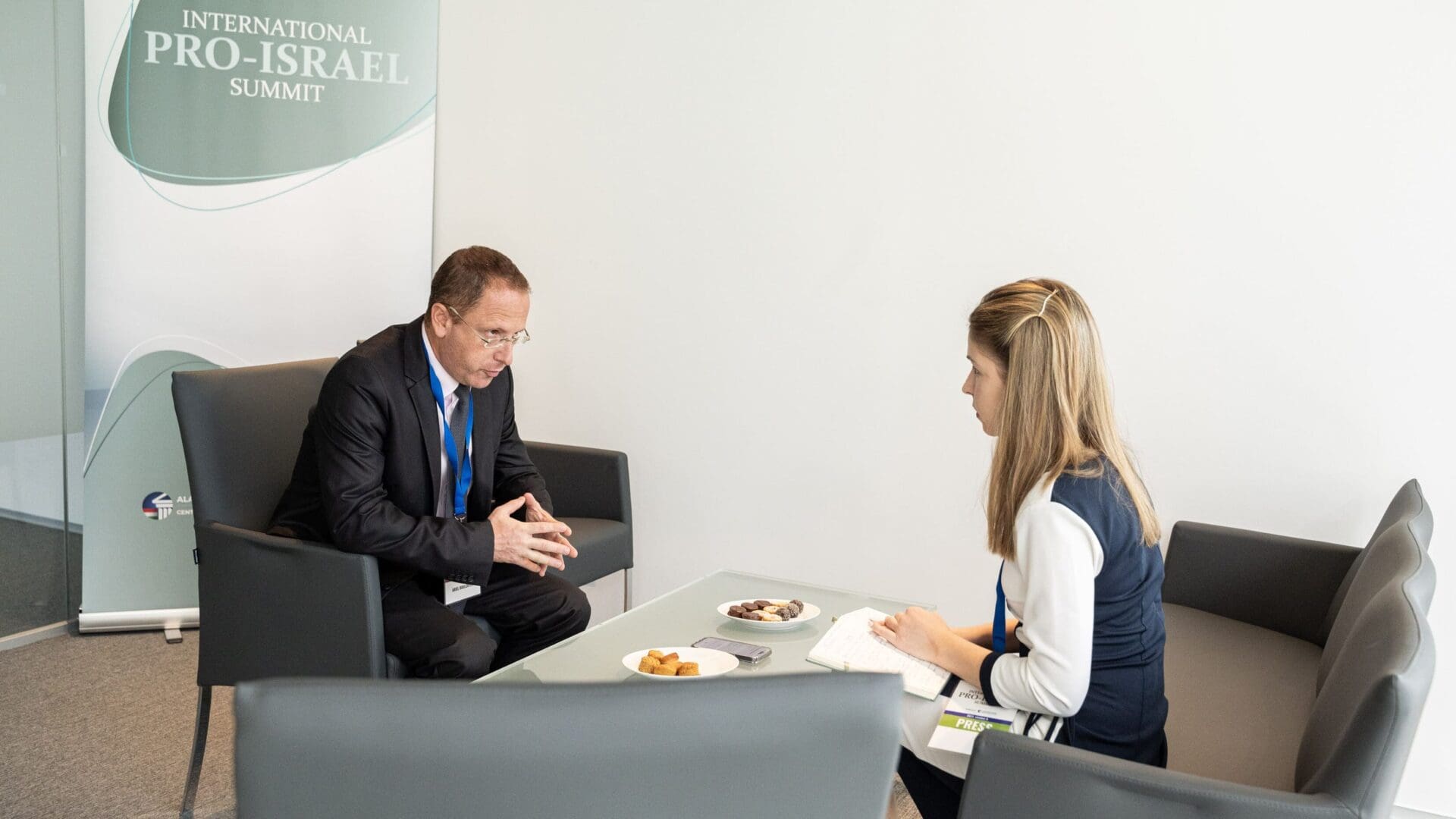
You mentioned that it is hard to spot the terrorists. Is differentiating between the military and civilian population that hard?
The whole concept of dividing between military personnel and civilian populations does not work in the Middle East. This is another problematic issue both for the Israeli public, and especially for the international community to understand.
First of all, if you’ve seen the pictures of the events on Saturday, you probably noticed that not only people who were carrying guns crossed the borderline between Israel and the Gaza Strip, but also a lot of youngsters without guns. A big number of them actually participated in this terror attack. They were not part of the Hamas planning. They didn’t know, but when the possibility and the opportunity were created and the border was not under Israeli control, they ran into Israeli communities and they took an active part in mass killings. Some of them took babies as hostages and brought them back to Gaza. Others actually killed people, and it’s very difficult for the civilized world in general to understand that big portion of the Gaza population—despite the fact that they do not have guns, and despite the fact that officially they do not have any rank in Hamas hierarchy—actually shares the same ideology, If they have an opportunity, they automatically want to be part of this same terror wave and, I would say, it adds to the fact that their organizations are not an army, they do not have uniforms and so on.
That’s why when we are going to reply and start the active part of the war, it is absolutely non-reasonable to expect that we should act according to the historical division between military and civilian populations.
Is Israel ready to take up the gauntlet?
The problem is, nobody in Israel would like to aim at the civilian population, but it’s absolutely impossible to wage a war against an enemy who doesn’t declare himself an army, who doesn’t wear a uniform, who in everyday life uses the classical civilian population as a human shield. Because, for example,
the classic tactic of Hamas is placing their rocket launchers inside schools, inside hospitals, and inside civilian houses.
Unlike every other country, there are no military bases of Hamas that are considered legitimate targets for waging the war.
When we are dealing with Hamas, they—on purpose—hide all their facilities, all the military capabilities inside human shields, inside not only communities in general, but also inside houses, or inside schools. The major command station of Hamas as a war room is exactly under the major hospital of Gaza City because they understand that Israel cannot afford to attack it. Even if we know that the major work criminals are there in the tunnel under the hospital, nobody in this room can give a command to attack it.
But I suppose that this kind of self-restraint that we impose on ourselves in this situation prevents us from crushing the enemy. This tactic of Hamas using people, either Jews in Israel or Arabs in Gaza as hostages and human shields, unfortunately, works. To wage a struggle against this kind of barbaric ideology in white gloves. and acting like a medieval fighter acting according to some rules of chivalry, it’s almost impossible. And this case proves that it is impossible — not almost impossible, it’s impossible. They treat our population as legitimate targets.
There are widespread videos on the internet depicting Hamas terrorists killing children and elderly as well.
And it’s not by mistake that they kill kids or elderly people.
They prefer targeting civilians more than soldiers because it’s easier; civilians cannot defend themselves.
Additionally, they intend for the Israeli public to be shocked by these gruesome images.
In one of the communities near the Gaza Strips that were conquered by the terrorists, there is an elder’s house—a large number of old people who lived their last years there. I couldn’t see the pictures of what they did with them: they just put guns against people’s heads who were 85–90 years old, humiliated them and then killed them.
When you are in a war with this kind of evil, if you start to act as if you were in classical warfare with a distinction between civilian population and military, you cannot win it. And they know this perfectly well. And that’s why they act like this—they understand that this is Israeli weakness: it’s our moral strength to be a civilized society. But when you are dealing with them, it’s a weakness, unfortunately. I do not have a clear answer for this dilemma because I would not like to be an animal and behave like them. But I understand that if I continue to think about this like a regular war, I will not win. You cannot play chess with somebody who throws all the pieces at you. He’s not playing chess. He plays totally another game…
Do you have to play by their rules?
I also do not want exactly that; I do not want to take Arab kids and kill them…
Then how can you end this war?
Exactly, that’s the question, and it’s not easy at all. You can see that neither of these extremes aligns with my beliefs. I don’t want to be like them, but I also don’t want to pretend as if this is conventional warfare, and honestly, I’m not sure what constitutes conventional warfare. However, I believe we should strive to find a middle ground.
A middle way?
Supplying the Gaza Strip led to crazy situations in some cases. For all these years, even during the rocketing, when thousands of rockets were fired at Israel, Israel continued to supply the Gaza Strip with electricity and water, without getting any money for that. I remember that during the last military operation there, one of their rockets hit the cables that came from an Israeli power station and it stopped the electricity supply to Gaza. The Israeli electricity company was ordered by our head of state to—under fire—send technicians to fix it. It is an absolutely unbelievable situation. Let’s consider World War II for a moment. Imagine Britain supplying electricity to Germany, and if the Germans were to target this power supply line, British technicians would have been dispatched, risking enemy fire, to repair it.
Why have you been supplying energy to the Gaza Strip, then?
Because we are very strained by this worldview of humanity. Because we are told there are babies, adults and old people, right? They would be without electricity, without water. And instead of building their power station or water dissemination facilities, they put all the money that the world poured into Gaza—unbelievable sums of money—and built tunnels and dozens of thousands of rockets. It’s not something that you or I can do here in this room—it takes a lot of money.
All these examples illustrate the same phenomenon: dealing with absolute evil. Historically, we attempted to confront it when one hand was tied and, in the last years, when two hands were tied. Now, you cannot find these two hands tied. They were restrained due to our self-imposed constraints—we didn’t want to be similar to them. Also, international pressure played a role because the international community couldn’t understand what we were dealing with. I hope that the recent shocking events that occurred on Saturday will release us from this self-restraint.
I’m not naive enough to believe that the international community will understand. No, I’ve seen the different channels. All of them are singing the same song. Another round of escalation and, during the interviews, the majority of them are also being asked this question ‘What are the prospects of this route of escalation?’
I try to explain no, this is not the escalation—it’s absolutely another level of barbarity
that you cannot expect from a human being, even from your enemy. And we cannot act like it’s another escalation that now hit us. That is something that the world community needs to understand. There is no going back to usual after what happened on Saturday.
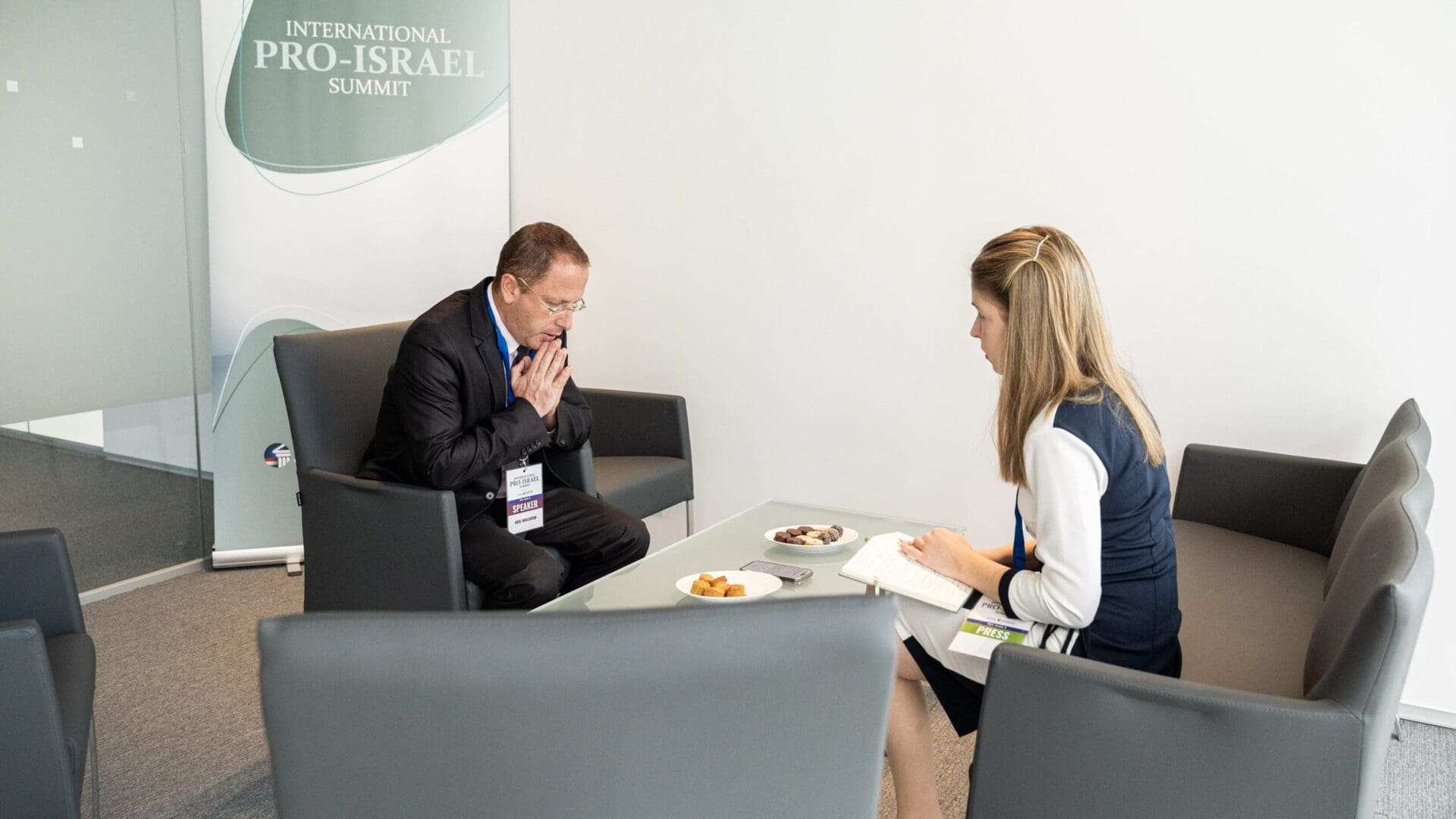
What could be the new way of coexistence that you mentioned at the beginning of this interview?
There is no chance of continuing to coexist with this inhuman ideology on your border immediately. So there is only one alternative: Israel needs to destroy Hamas totally and take from them all the possibilities to attack us. In my opinion, this entails a prolonged first stage focused on containing the situation within this specific territory. Unfortunately, there have been different indications that our military is not sure that the whole territory is free from the terrorists. Perhaps there is still some kind of uncertainty because, after the initial shock, every suspicion is checked again and again, so every phone call to the police or every suspicious person in the woods. But this is just the first stage.
The second stage would be an attack. The attack on Gaza started, albeit on a very limited scale. It’s not my job to describe the military preparations and so on, but I suppose that we will use a lot of capabilities that Israel has in order to crush Hamas.
And the major question is, of course, what happens after that? But that shouldn’t be taken as an easy stage, too, because it will take a lot of time to clear this territory from the terrorists. And unfortunately, there will be a high price: a high price in Israeli lives, because they continue and they will continue to attack Israel with all the possibilities they have. And now I get a notification on my phone every two–three minutes that there is another rocket attack on this city, on that city, on this town. And there will be a high price on soldiers’ lives. Because again, even in that situation, I think that we cannot act, for example, like Russia which wages this war by just bombarding everything. This is not in the Israeli DNA, we cannot do it, especially when they use human shields.
Prime Minister Netanyahu said publicly that he is asking the civilian population just to flee from there. But I’m pretty sure that they will not do it now, but maybe they will start when they see that Israel is serious. Of course, in the ideal world that territory should be cleared from the civilian population, and Hamas should live there and try to do everything in a traditional war. But I do not have such an expectation, they will do everything in order to hide amongst the civilians and use this advantage of taking others’ lives as human shields.
Moving on to the reactions of other countries, it seems that a very rare event occurred: the entire international community stands with you as one.
At least now, but I’m afraid… I would like to hope that it is not something temporary, but our lessons from the past teach that usually this kind of standing by Israel and support starts to disappear as time passes and from the point of view of the international community, and as the terrible pictures stop being shown.
This world does not use these terrible, horrible videos and pictures—this is another big dilemma. People would not like to see the bodies of their relatives to be published in such a way. We are sensitive to families, but also because we do not like the idea of using them as a weapon in the information war. And unfortunately, you cannot transfer the feeling of the horror of what was perpetrated there without seeing it.
But this is only one aspect, I’m afraid that this support is not a permanent one, especially when the other side will use every opportunity… So every image of a destroyed building in Gaza will be multiplied on all the screens of TV channels. And gradually, we will hear the voice that will be politically correct, expressed: ‘Let’s try to find the solution’. All these good words like ‘solution’ and ‘peace’: you cannot argue with them because everybody wants peace, everybody wants a solution.
The problem is that they would like to stop us. And when we are stopped, the other side will, again, reinvent itself through another thousands and thousands of rockets. Hence, if we don’t put a stop to this now, the cycle will persist. However, I’m apprehensive that after this horrifying event, they will seek to escalate further because repeating the same action won’t satisfy them. Consequently, the next time they’ll contemplate even more horrific actions and operations. This is why I believe that Israel has no option but to decisively dismantle Hamas at this moment.
You referenced in the panel discussion that Israel knows who its true friend is and who is not. Could you further elaborate on that? And how do you see Hungary in the current situation?
First of all, you’re correct.
Israel does recognize who were the true friends and Hungary has proved for a long period of time under Viktor Orbán’s leadership that—despite the pressure from larger and possibly more powerful European countries,—it can stand alone at times and will not conform
with this general line that of ‘both sides are to blame, both sides are wrong, and let them find the solution’. Hungary understands without any doubt who the murderers are and who the victims are. In a practical sense, we actually cherish the brave behaviour of Hungary when it used its veto—or sometimes you even do not need to use the veto because if the other countries know that you would oppose, they would not even start the proceedings with different resolutions.
There are a lot of countries in the European Union, especially in its central and eastern parts, that share the same clear view of who is right and who is wrong. Maybe the difference between them and Hungary is the fact that the Hungarian leadership was brave enough to stand against bigger countries in the EU and not let them lead the opposition against Israel. In a more practical sense, besides the fact that Hungary can thwart anti-Israeli resolutions, I don’t think they are on the agenda now. Hungary can make an even bigger step towards Israel and lead the pro-Israeli agenda. Another step is that we know that there are certain discussions in Hungarian leadership regarding the possibility of moving the Hungarian embassy to Jerusalem.
Is this a tangible form of support? Some may argue that it doesn't appear to impact the conflict against Hamas if the Hungarian flag is flown in Jerusalem.
Of course, no, but such a move has a great impact. For example, when the United States did it, the whole world—you may argue that it is because it’s the United States—understood that this is a trend. You can delay it, but you cannot oppose it, and the fact that after the president changed, Biden didn’t try to make something different either.
Jerusalem continued to be the place for the US Embassy. The major decision by Trump was to recognize Jerusalem as the capital. By the way, it was recognized by the US Congress many years before. But the practical implementation of moving the embassy was delayed and delayed and delayed... And Trump understood the basic facts. And when somebody understands that it’s a morally clear fact that, first of all, you cannot deny the country’s right to decide where its capital should be. We cannot tell Romania, for example, that Constanta is your capital, not Bucharest.
There was a lot of fear that after Biden was elected, he would try to reverse all the moves by Trump. Some of them were really reversed. For example,
Trump stopped all financial support to the Palestinian administration because he understood that it was going to finance terror. And unfortunately, Biden reversed this decision.
But there are steps that are made for history. Now it’s time to make this step because the first European countries that do it will be remembered forever. Of course, it takes courage.
And there are other countries that made the same decision, some countries in Latin America. Now, Fiji will be the next country, maybe not as big or powerful or important as the United States. But it’s international relations. Every country can make an impact, especially when you are not following others but you are the first, you are the pioneer of the right idea and the right step. So I think it will be great if the Hungarian flag will be flown in the skies of Jerusalem.
Miklós Szánthó, the Director General of the Center for Fundamental Rights, mentioned in his speech that Hungary and Israel could be strong allies due to sharing common adversaries related to the threats emerging from woke ideology and the anti-Israeli movement, which are, in some sense, similar. What are your thoughts on this? Do you agree?
I definitely agree. I would even make it broader because we not only have the same enemies, but we have very similar ideas to defend against these enemies as well. Sometimes my enemy and your enemy can be a common one, but from me, he wants something that he doesn’t want from you.
In our case, it’s the same threat to the same idea that we as small, but unique nations know what their heritage is, what their histories are, what their languages are, and what their values are. And we would like to protect all those.
And yes, I definitely agree that there is a big similarity, even though it’s not a similarity of 100 per cent. We have different histories, and we have even different locations. That’s right, you are threatened by this idea of unifying and erasing the national identity. I hope that this idea is not as threatening as it was, for example, 10 or 20 years ago, because there is big disillusionment of this idea not only in Central Europe but, also in other parts of Europe. I think now this threat is less strong than it was. But in the Israeli case, the threat is not only ideological, it’s a physical threat, and the everyday threat of extermination. We got the reminder on Saturday. So, the threats are not the same, but I think that the values are similar and the threats are also similar.
Thank you for the interview. If the circumstances were different, I would have also asked if you believe that we can anticipate Prime Minister Netanyahu visiting Hungary…
I’m pretty sure that he would like to visit Hungary. Of course, now it’s time for other activities and he’s 100 per cent attentive only to that. But yes, why not, and again, it’s not a secret that he has good personal relations with Mr Orbán. And he has a personal attachment to Hungary and what was achieved in Hungary.
Related articles:

